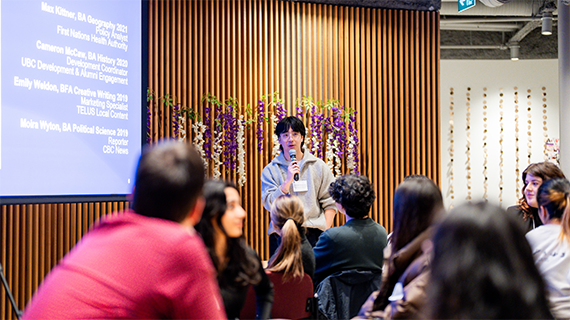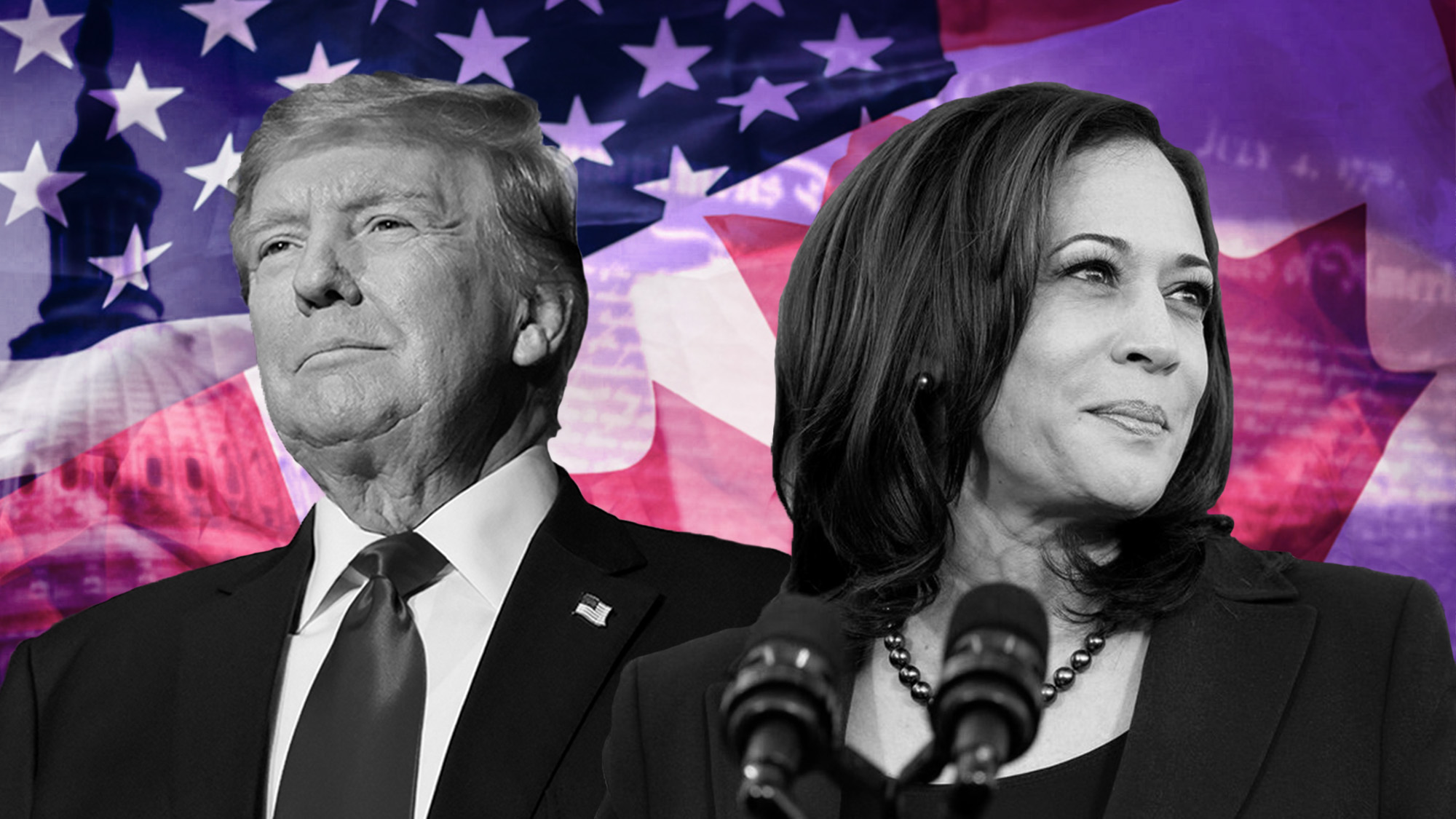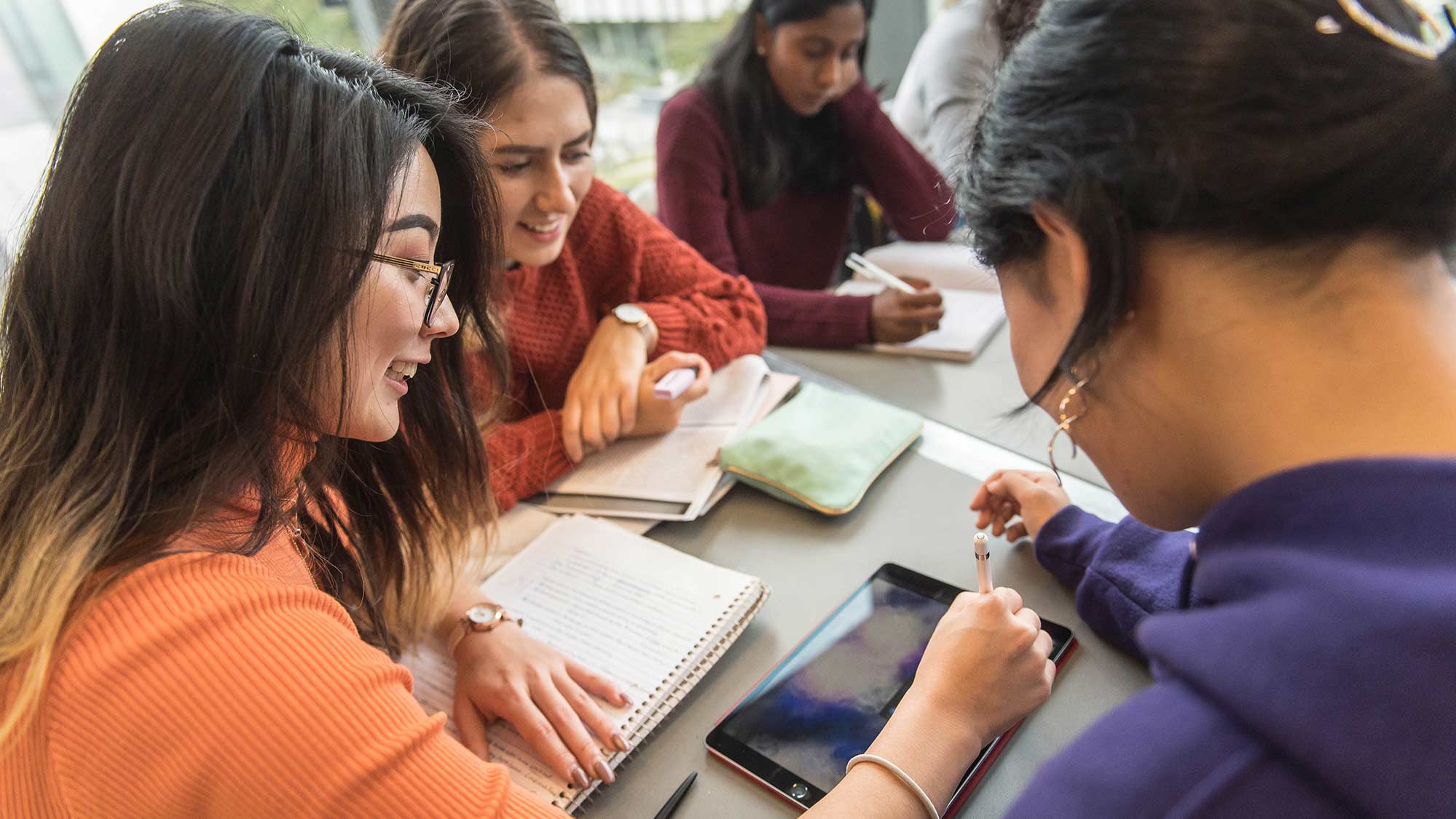

Arts Undergraduate Society (AUS) President Justin Yang is the 2012 recipient of the Dean’s Outstanding Leader in the UBC Community Award. Graduating with a dual degree in English Honours and Cell Biology/Genetics this May, Yang reflects on his five years as a student and a campus leader.
You have a long history of involvement at UBC. How do you achieve a balance between academics and campus activities?
I don’t really find it a balance, because I do things that I really love. I had a tough first and second year because the Science curriculum was standardized for everybody, but once I got into my third and fourth year classes, it got easier for some reason, and I really loved my coursework. Similarly with English – I knew the dual degree would be a little extra work, but I didn’t mind because it was something I loved. And I guess it’s the same with involvement; if you do things you love, it never feels like work.
What’s the benefit of doing a dual degree?
It’s definitely got to be the interdisciplinary nature of it all. Being formally trained as a student of liberal humanities and as a scientist is a huge benefit. The ways of thinking are so different, and I’m finding that there is actually a lot of fertile ground between them.
One of the things I was really interested in was the rhetoric of science, medicine and technology. It blends two things that I’m relatively familiar with – advanced cell genetics/cell biology and human cultures.
Also, I’ve learning different ways of thinking. When I write English papers I often find myself thinking about the meta-literary, or meta-philosophical; in other words, questioning the methodology we use, a practice that we get from Science. So it’s the range of education I’m getting here.
Do you have any advice for students who are trying to decide what they should be involved with on campus?
Don’t try to do everything. Pick a couple things that you really love and just go for them full tilt – throw pasta at the walls and see what sticks. It’s about trying out what fits you, so don’t be afraid to move on if you feel like you’ve learned as much as you can, or if it’s not the right thing.
Also, talk to people. People who are involved aren’t scary people; they’re involved because they’re genuinely nice. You can always ask them for advice.
What’s an important life lesson that your involvement activities have taught you?
Don’t be afraid of failure. Just try to take the good with the bad, and don’t be too caught up with feeling sorry for yourself; it’s going to pass. And we’re all really young, so we’re not going to remember all our failures, just the really big successes.
You recently received the 2012 Dean’s Outstanding Leader in the UBC Community Award. What do you think makes a great Arts student leader?
I think it’s the courage to stand up for what you believe in, to do what you love and to do it passionately. Things like the Student Leadership Conference, that seek to develop skills, or to build capacity for leadership – I think they’re ancillary to the primary step of you saying, ‘I’m going to step up and do something, I’ve got what it takes.’
In my first year, I didn’t know what I wanted to be involved in. But I knew I wanted to do something at UBC – partly because I was a commuter student and I wanted to find where I belonged. And in doing so, I found myself in a position where I could make changes that affected people in a positive way. So, leadership doesn’t take much; it’s just putting yourself out there and going for something. And being able to commit, even if you don’t know what the greater good is.
Are you still a commuter student?
I am. I’ve been a commuter student for the past five years, and it’s really made me more measured about what I get involved in. I find that I’ve been taking taxis home, more often in the last three years than before. My involvement used to be dictated by when the last bus left, but I have a couple of jobs now – so if it happens once in a while, I don’t mind it.
But commuting is a huge drain. Your energy level’s down when you’re on the bus for so long. But what I would say to commuters is, get involved in something and that will give you the energy. You’ll find reasons to stay on campus and you’ll find ways to get home, but it’s about finding your reason and finding your home on campus.
Looking back at your five-year history with UBC, what’s one thing you would change about the way you’ve charted your undergraduate course?
I would take more risks. I’m a little introverted by nature, which is uncommon in student leaders. The path I took was very gradual, and I built up my skills and my knowledge, but I never pushed myself really hard out of my comfort zone.
For instance, after my first year, I had considered running for an executive position with the Science Undergraduate Society (SUS), and for a variety of reasons I let myself get talked out of it. And I think that was my biggest regret. I eventually got the position I’d been thinking of, but looking back, I feel like I could have done it earlier. It would’ve been interesting to see me take a plunge, because if I’d been able to do it in spite of everyone telling me I couldn’t, I’d feel really strong. So that’s something I would recommend to all students: do things that make you uncomfortable. Obviously in a safe way. But if you don’t do one thing that makes you uncomfortable while you’re at UBC, I feel like you’re really missing out on the whole university experience, because we’re here to try new things and meet new people.
What are the top three things that every UBC Arts student should do before they graduate?
If you’re in Arts, at least one thing you should do is visit the cultural wealth that we have at UBC. Attend a show at the Belkin, the Chan or Freddy Wood – UBC Arts has so much more to offer than just lectures, discussion groups or language labs.
One other thing is, break boundaries in some ways. Go on exchange, or do an international service placement – because learning happens everywhere and always. Another thing that I regret is that I never went on exchange, and part of it was being involved with stuff so I couldn’t really go away. But take your learning somewhere else, and really make it yours.
And I guess for the third thing…do something fun. Something sports-related, like Storm the Wall or Day of the Longboat, or a social activity, like Arts Week’s Mardi Gras or the Block Party. Do something that has no demands of you, where you just get to celebrate being young and being at UBC.
What are your post-graduation plans?
I’m planning to take a year to work. I’d like to get involved with start-ups, and I have a social enterprise I’m planning to work on over the summer. Then after that, I’m looking at graduate study – either in English, or some field relating to my interests. Unfortunately, my interests are really wide so I haven’t figured out exactly what I want to apply for. But there’s probably still a few years of university left in me.
Did any of your experiences on campus help clarify these plans?
Getting the leadership positions I’ve held is a huge honour. They’ve shown me that I love bringing out the best in people, and nurturing other people’s talents and capacity.
Aside from that, I applied for an innovative project fund, and I got funding to do a pet therapy pilot program. We’re bringing a bunch of puppies to UBC for students to sign up and visit for half an hour. And we’re also taking the opportunity to educate students, so instead of just visiting the puppies, you get to learn about the resources that UBC has about mental health and wellness. I didn’t realize this so much for myself, but being a student is really stressful and damaging to your own mental well-being. I’d like to help others cope, and be able to do better and succeed.
When will your project be implemented?
It’s on April 4. I’m amazed, because a year ago I was thinking to myself, ‘Wouldn’t it be nice if we brought puppies to UBC?’ And now, it’s finally happening. So I guess that’s an example of leadership. I don’t really consider myself a leader for doing that, but if you have an idea and you can make it happen, that’s leadership.
As the outgoing AUS President and a graduating Arts and Science student, what tips do you have for incoming Arts students? For graduating Arts students?
To incoming Arts students, I would say the same thing I said in my Imagine speech, which was, ‘Get out there. Just go do something.’ It’s so easy at UBC to be passive, so it takes a little bit of courage, and a lot of faith to go out there and be willing to make yourself vulnerable. But the reward you get for doing that is so worth it. And you can’t tell someone enough because you don’t know until you do it. And some students might get burned; they may have a bad experience with a club, or they don’t get elected in an election – but that’s not a reason not to get involved somehow.
For graduating students, I would say, don’t worry. It’s all going to be okay. It’s a brave new world, and four or five or six years ago, you just came to UBC, and look at how much you’ve grown. And take stock in that, because you are so much stronger, so much more resilient, and so ready to take on the world. So don’t doubt that. Have a little faith. The world is a dark place sometimes, but bring your own light into it.


